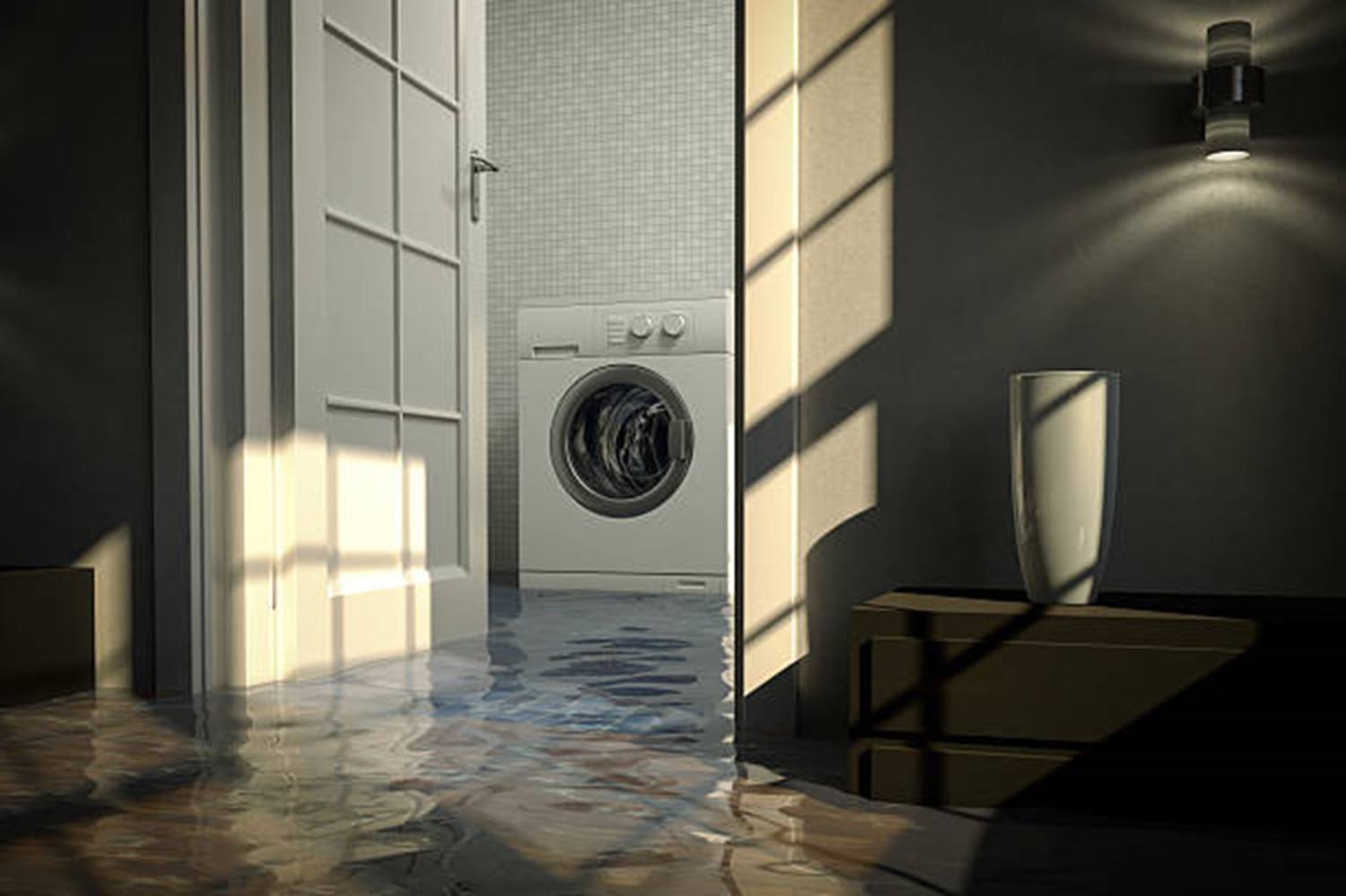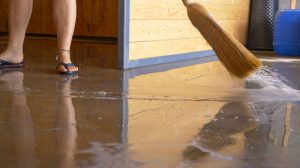Flooding in the basement is the most expensive damage that can ever happen to a homeowner. While many basement flooding occurs during heavy rainfall, it can also occur during dry weather. Remember, flooding in the basement can ruin your furniture and destroy your carpet.
Basement flooding causes more than water damage. It can also lead to mold and mildew formation and other health-related hazards. However, when the cause of basement flooding is identified on time, you can prevent further damage.
Below, we will look at the major causes of basement flooding and how to fix them. Let’s dive in!
Causes of Basement Flooding
1. Clogged Gutters
As we all know, gutters are important components of any home, whether residential or commercial. They help to divert rainwater away from your home, especially the basement, which is prone to water damage.
If your rain gutters are clogged with leaves, twigs, and other debris, they are unable to redirect rainwater away from your home. This causes them to overflow, leading to water seeping through your walls and finally to the basement.
2. The Location of Your Home
The location of your home might be the most common cause of basement flooding. If the land or yard around your home does not slope away from it, your basement will likely flood. Likewise, if your house is located near a river or stream, the basement is likely to flood if they overflow.
Furthermore, if there are large hills around your house, your basement might be in danger of flooding as water will gather towards it.
3. Poorly Installed Downspouts
Just like rain gutters, downspouts are equally important. They help direct water away from your home’s basement. Your home’s downspouts should be 5 to 6 feet away from your basement and should drain water toward the street or backyard.
However, if they are poorly installed or broken, the water from the gutters will seep through the cracks in your basement, leading to basement flooding.
4. Plumbing Leaks
Some errors in your home’s plumbing could also cause basement flooding, even if your property is not prone to flooding. The pipes might burst or clog, leading to water leakage in your basement and other parts of your house.
If there is a plumbing leak in your home, the water will be dirty and smelly, which means the water is coming from clogged drains or a sewer backup. Note that flooding caused by plumbing leaks can cause serious health hazards if not corrected on time.
5. Poor Basement Sealing
During the construction of a home, the basement tiles must be sealed properly, especially if the house is located in areas prone to hurricanes and heavy downpours. These events might cause flooding in your basement if they are not well sealed.
Additionally, if your home is constructed in areas prone to snow, it is in danger of snow melting, leading to water seeping into your poorly sealed basement, thus causing flooding. Water might also start to seep from the underground sources if your basement is not tiled correctly.
6. GroundWater
Subsurface groundwater can also cause basement flooding due to hydrostatic pressure. Unfortunately, subsurface groundwater leakages are more expensive and difficult to fix than surface groundwater leakages.
So, when the groundwater rises above the basement, the basement is like a boat in the water, and if there are cracks on it, the water will seep through the cracks leading to basement flooding. The groundwater rises due to hydraulic pressure.
7. Lawn Irrigation
Most property owners want to keep their lawns active by growing flowers or food. However, the mistake comes in when the irrigation is done too close to the house. The excess water might seep through the cracks or holes in your basement, leading to basement flooding.
8. Hot Water Tank Failure
If your house has a hot water tank, this might be a potential cause of basement flooding. If it’s damaged or fails, it can lead to basement flooding. So, it’s good to inspect your hot water tank annually to look for any breakages.
9. Broken Sump Pump
A sump pump is a draining system that helps keep your basement dry and free from groundwater. It collects the excess water that comes from heavy rainfall or from the foundation and drains it away from your home.
How to Prevent Basement Flooding
1. Check for Cracks in Your Foundation
Holes or cracks in your foundation can allow water to seep into your home’s basement leading to basement flooding, especially during heavy rainfall. So, ensure you inspect your foundation with the help of an expert to check out for cracks and holes. If you find cracks or holes, ensure you fix them on time to avoid further damage.
2. Install Gutter Guards
As we said earlier, gutter overflow is one cause of basement flooding. Gutter overflow is caused by the accumulation of debris in the system leading to gutter clogging. Gutter clogging can be prevented by regularly cleaning your gutters, which is a very risky and tiresome task.
Fortunately, there is a better and more cost-effective way to prevent basement flooding caused by overflowing gutters, which is installing effective gutter guards on your gutters. Gutters may also have cracks or have fallen off, leading to water seeping into your foundation. You can seal off the cracks or install new gutters.
3. Clean Your Downspouts
Downspouts may be clogged with leaves or other debris, leading to them leaking water into your foundation. So, you should clean them regularly to remove the clogged debris. Plus, ensure they are 5 to 6 feet away from your walls. If they are too short, you can use downspout extensions.
4. Seal Basement Windows
Ensure your basement windows are correctly installed and sealed so that rainwater does not leak inside whenever there is a heavy downpour. You can also prepare for heavy rainfall by making sure the basement windows are in place.
5. Invest in a Sump Pump
Installing a sump pump can help prevent basement flooding. It is installed in the lowest part of your basement, and it immediately pumps out water that gets into the basement. However, the sump pump uses power to pump out water, so it’s good to have a backup generator in case power goes out.
6. Install a Water Leak Detection System
A water leak detection system is an automatic water shutoff system that automatically shuts off all water supply in a home when it detects that there is water on the floor or an irregular flow of water in the pipe.
7. Replace Your Pipes
Most home piping usually has a lifespan of 50 to 80 years, so if the house you live in is older, you need to check the condition of your pipes. PVC pipes require to be changed every 30 to 40 years to avoid water leakages into your basement.
8. Pump Your Septic Tank Regularly
Sewer backup might be one of the most unpleasant water damage and basement flooding that can ever happen to a home. If you have a septic tank in your home, you should have it inspected and drained regularly to prevent sewer backup.
What To Do When Your Basement Floods
1. Call Your Insurance Company
You should take pictures as soon as you notice the damage in your basement. Most home insurance will cover these kinds of damages. Most homeowners insurance covers damages within the house, like sewage backups and pipe leaks.
However, not all homeowners insurance will cover basement flooding caused by natural causes like hurricanes or heavy downpours.
2. Cut Off Power in Your Basement
Before anything else, ensure you disconnect the power in your basement to avoid getting electrocuted.
3. Stop the Water Source
To prevent your basement from flooding further and causing more damage to the floors, disconnect the water from the source. That is if the water is coming from damaged pipes. However, if the source of water is hurricanes or heavy rainfall, stopping the source is impossible.
4. Pump Out the Standing Water in Your Basement
The next step is to pump out the standing water in your basement. Wear protective clothing if you are dealing with sewer backups, as you might be exposed to biohazards that might cause severe illnesses.
5. Dry Out Your Flooded Basement
Once the standing water is out, you still need to dry the floors, walls, and any other items in the basement. You can use industrial drying fans or dehumidifiers if you have one. However, don’t leave any water, which might lead to mold formation.
6. Remove Damaged Items
Remove the damaged items and clean the salvageable items with liquid-based disinfectants. Ensure they are completely dried to avoid mold.
7. Sanitize Everything
Ensure you clean everything with a bleach cleaner to remove bacteria, mold, and other biohazards.
Conclusion
As a homeowner, you need to identify the causes of basement flooding so you can work towards preventing that. However, sometimes the weather is unpredictable, and it can be difficult to avoid basement flooding, so you need to know what to do if flooding occurs.




